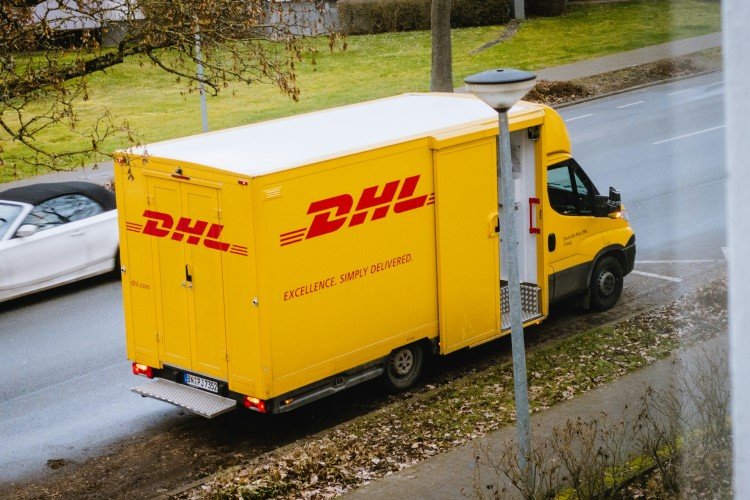
From Order to Delivery: How to Efficiently Fulfill International Export Orders
Author:White Fox Corporation
Published on:Mar 15 2025
As markets grow globally, companies need streamlined processes to manage their export orders.However, getting an order from placement to delivery to international customers is not easy.
Businesses face many challenges in global trade, including customs regulations and shipping delays.
In this blog, we will look at strategies to help you manage these challenges and fulfill international export orders effectively. We will cover each step of the fulfillment process, identify common issues, and suggest practical solutions to save time, cut costs, and boost customer satisfaction.
Understanding the Process of Fulfilling International Export Orders
Fulfilling an international export order requires several steps that need to be done smoothly for success.
Here, we will outline the main steps for fulfilling international orders.
The Key Stages in Order Fulfillment
1. Order Placement
The first step in the order fulfillment process is the placement of an order. Once a customer places an order for products from your business, you’ll need to confirm the order and process the payment. This typically involves:
-
Order confirmation and verifying payment.
-
Communicating with the customer about the order status.
-
Addressing any specific requirements, such as packaging preferences or delivery instructions.
2. Order Processing
After the order has been confirmed and payment is processed, it’s time to prepare the order for shipment. The order processing stage includes:
-
Inventory check: Ensure that the items are in stock and ready for shipment.
-
Order picking and packing: Collect the items from the warehouse and prepare them for shipment, making sure they’re packed securely.
-
Documentation preparation: Prepare all necessary shipping documents, including invoices, packing lists, and any required certificates for international shipping.
3. Shipping and Customs Clearance
At this stage, the goods are ready to be shipped internationally. This involves:
-
Preparing goods for shipment: Properly labeling and packaging the items for shipment.
-
Navigating international customs regulations: International orders require compliance with local customs regulations, including duties, taxes, and customs clearance.
-
Shipping: Choose the best shipping method (air, sea, or land) based on delivery timelines, costs, and customer needs.
4. Last-Mile Delivery
The final stage in the fulfillment process is the last-mile delivery, where the goods are delivered to the customer’s door. At this stage, businesses must:
-
Provide tracking information so customers can monitor their order.
-
Address any delays that may occur during shipping.
-
Ensure timely delivery while addressing potential challenges like customs delays or weather conditions.
Common Challenges in International Order Fulfillment
Fulfilling international export orders is not without its challenges. Businesses frequently face several challenges, including:
1. Understanding International Regulations and Compliance Requirements
Each country has its own import and export rules. Following these rules can take time, but not doing so may lead to penalties or delays.
2. Managing Shipping Costs and Finding Cost-Effective Carriers
Shipping internationally can be costly, especially for large or delicate items. It's important to find dependable and affordable shipping options to improve your business's profits.
3. Dealing with Customs and Import/Export Restrictions
Dealing with customs rules and trade regulations can be very difficult when exporting internationally. Not following these rules can lead to delays, fines, or even loss of goods.
4. Handling Delayed or Lost Shipments
Shipping delays often happen with international orders, and lost shipments can hurt customer satisfaction. Businesses need to be ready to handle these problems quickly and reduce their effects.
5. Ensuring Communication with Customers Throughout the Process
Good communication is essential for managing customer expectations, especially during delays or problems. Updating customers on their order status can reduce frustration and create a better experience.
Also Read - https://whitefoxcorporation.com/blog/the-benefits-of-partnering-with-a-reliable-import-export-company/
How to Streamline International Order Fulfillment for Efficiency
To overcome these challenges and streamline the order fulfillment process, businesses can implement several strategies.
Below are some of the best practices that can help you optimize your international export operations.
1. Invest in an Integrated Order Management System (OMS)
An Integrated Order Management System (OMS) is a tool that helps businesses efficiently manage their inventory, orders, and shipments.
-
Real-time tracking: With an OMS, you can track orders and inventory levels in real time, ensuring that orders are processed and shipped on time.
-
Automated workflows: An OMS can automate many aspects of order fulfillment, reducing human errors and improving efficiency.
-
Increased accuracy: Automation helps reduce manual entry errors and improves overall order accuracy.
2. Choosing the Right Shipping and Logistics Partners
Working with reliable shipping and logistics partners is crucial for efficient international order fulfillment.
-
Shipping modes: Depending on the destination and urgency, consider air, sea, or land transportation. Each mode has its advantages and cost considerations.
-
Freight forwarders: Freight forwarders play a crucial role in handling complex international shipments and ensuring that all logistics aspects are managed properly.
-
Global logistics providers: Collaborating with established global shipping companies ensures timely deliveries and better tracking capabilities.
3. Automate Customs Documentation and Compliance
Managing customs documentation is a critical part of fulfilling international export orders. Automating this process can help:
-
Ensure accurate paperwork: Properly completed commercial invoices, HS codes, certificates of origin, and other required documents are essential for smooth customs clearance.
-
Reduce delays: Automation tools can reduce errors and streamline the compliance process, preventing delays at the border.
4. Implement a Tracking and Customer Communication System
Real-time tracking is essential for both businesses and customers. It allows customers to stay informed about the status of their orders and helps businesses identify any potential issues in the shipping process.
-
Tracking platforms: Many modern shipping companies offer platforms that provide live tracking updates.
-
Proactive communication: Proactively informing customers about delays, customs issues, or other potential problems helps build trust and improve satisfaction.
Managing Risks in International Order Fulfillment
Managing risks associated with international order fulfillment is crucial to maintaining smooth operations and ensuring customer satisfaction.
1. Insurance and Risk Management Strategies
Shipping internationally involves risks such as cargo loss, damage, or theft. To manage these risks, businesses should consider the following:
-
Cargo insurance: Protects against potential losses during transit.
-
Liability insurance: Covers damages or losses that occur due to the company’s actions.
-
Risk assessment: Conducting a thorough risk assessment helps identify potential shipping hazards and develop strategies to mitigate them.
2. Preparing for Unexpected Delays
Delays are a part of international shipping, but how you manage them can make a big difference. Businesses should:
-
Create backup plans: Develop backup strategies for handling shipping delays caused by weather, customs, or other unexpected events.
-
Set realistic customer expectations: Keep customers informed about potential delays and provide realistic timelines to ensure satisfaction.
Best Practices for Optimizing International Order Fulfillment
To further optimize international order fulfillment, businesses should follow these best practices:
1. Establish Clear Shipping Policies
Clearly communicating shipping policies can help manage customer expectations
-
Shipping timeframes: Ensure that customers are aware of expected delivery times and any potential delays.
-
Returns, duties, and taxes: Be transparent about return policies, customs duties, and taxes to avoid confusion.
2. Packaging and Labeling for International Shipments
Proper packaging and labeling are crucial for ensuring that products arrive safely and comply with international regulations.
-
Eco-friendly packaging: Use sustainable packaging materials to reduce the environmental impact.
-
Correct labeling: Ensure that labels include accurate addresses, HS codes, and any required certifications.
3. Partnering with Local Distributors or Warehouses
Building partnerships with local distributors or warehouses can help streamline delivery times and reduce shipping costs.
- Local fulfillment: Using warehouses in key international markets can reduce shipping times and increase customer satisfaction.
Technology’s Role in Improving International Export Order Fulfillment
Technology continues to revolutionize the export and import services industry.
Here's how businesses can leverage advanced technology to optimize their fulfillment processes:
1. Using Artificial Intelligence for Demand Forecasting
AI-driven demand forecasting tools can help businesses optimize their inventory levels across different markets, ensuring they meet demand while reducing excess stock.
2. Blockchain and Its Impact on Supply Chain Transparency
Blockchain technology offers enhanced transparency in the export process by allowing businesses to track shipments in real time, ensuring accountability and reducing fraud.
Conclusion
Fulfilling international export orders efficiently is crucial for businesses in global trade. By using strategies like an integrated order management system, selecting the right logistics partners, automating customs paperwork, and communicating well with customers, businesses can improve their fulfillment processes.
Using technology and best practices helps businesses remain competitive in the global market.
Whitefox Corporation is your trusted partner for export-import services. We provide customized solutions to make sure your international orders are fulfilled smoothly.
Contact us today to see how we can help your global growth!


